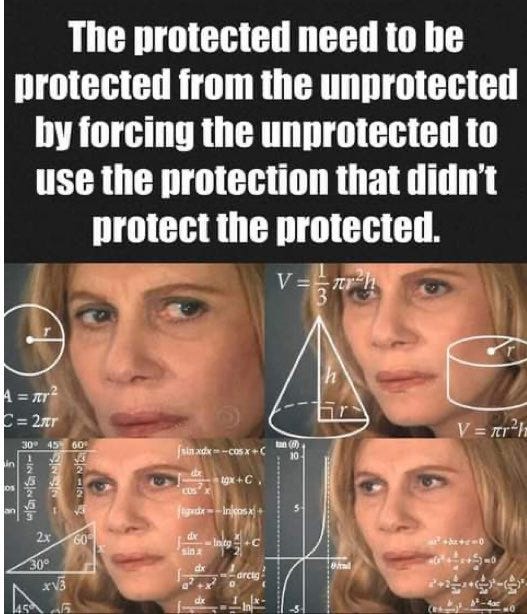“China’s surveillance network is expansive and pervasive. Chongqing, for example, holds the dubious distinction of being the ‘most surveilled city in the world,’ with roughly one camera for every six of its 30 million residents. Facial recognition systems identify those captured on camera, instantly recording their ethnicity and party membership. The state wastes no opportunity to gather biometric data, weaponizing it against Uyghurs and others suspected of disloyalty. And on WeChat – the Chinese equivalent of Facebook, WhatsApp, and Apple Pay combined – government monitors are ever-present. At the cutting edge, Chinese officials are testing artificial intelligence-powered analytics, which purports to predict unrest before it occurs.” – The Diplomat
“The Chinese Communist Party has been constructing a moral ranking system for years that will monitor the behavior of its enormous population — and rank them all based on their "social credit."
…Like private credit scores, a person's social score can move up and down depending on their behavior.
The exact methodology is a secret — but examples of infractions include bad driving, smoking in non-smoking zones, buying too many video games, and posting fake news online, specifically about terrorist attacks or airport security.
Other potential punishable offenses include spending too long-playing video games, wasting money on frivolous purchases, and posting on social media.
The punishments can come in a few forms, like travel bans, slow internet, and being banned from higher education.” – Business Insider
Many Americans will probably look at those Orwellian excerpts with horror, but you can be just as certain that there are a lot of people in our government that will view them as a roadmap for the United States to follow and “improve” upon. In fact, if you look back at the last two years, an awful lot of things have happened here that should horrify any American that cares at all about liberty.
We’ve had “non-essential” businesses FORCED to close their doors, sometimes for months at a time. In Michigan, “essential businesses” that were allowed to remain open were not allowed to sell what the state considered “non-essential” items to people that entered their stores.


Landlords were literally not allowed to evict tenants that refused to pay them rent for over a year and when that despicable practice was finally stopped, the sympathy from the government was almost universally for the tenants, not the landlords they were allowed to victimize.
We’ve had agents of the state harassing church members that dared to meet in person.
We now have the government demanding that businesses fire people that refuse to be vaccinated in order to protect the people that have already been vaccinated (huh?).
Of course, that doesn’t go far enough for some people. Anthony Fauci believes that people that aren’t vaccinated shouldn’t be allowed to fly. Others, like Washington Post columnist Laura Wen, go even further. She’s calling for Biden to literally not allow unvaccinated people to leave their homes.
Getting beyond COVID, we’ve seen two standards of justice over the last couple of years. Left-wing ANTIFA and Black Lives Matter rioters across the country were often allowed to break the law with impunity, while the more conservative Jan 6. rioters were falsely accused of trying to start an insurrection. The riot spawned congressional hearings and there was serious discussion about putting them on the no-fly list. Why the Buffalo horn nutjob would be more of a threat on a plane than some guy who set a black-owned business on fire to show that “Black Lives Matter” is beyond explanation.
Do you think the sort of power-hungry officials that are drawn to government service during these times will simply forget about these powers? Do you think they won’t ever find some excuse to use them again? Do you think they won’t look at these precedents and eventually GO FURTHER?
Of course, some of the things the government wants to do won’t be allowed by courts or will be more convenient to foist upon their private sector partners. This is not a new tactic for the Left. As Jonah Goldberg wrote in his extraordinary book, Liberal Fascism:
“The fascist bargain goes something like this. The state says to the industrialist, “You may stay in business and own your factories. In the spirit of cooperation and unity, we will even guarantee you profits and a lack of serious competition. In exchange, we expect you to agree with — and help implement — our political agenda.”
We’re already starting to see this play out in America in a variety of ways. Coke speaking out against Georgia’s election laws that are designed to make it harder to cheat. Biden making legally dubious demands that companies with more than 100 employees force their workforce to be tested weekly or get vaccinated. Democrats in Congress demanding that the social media monopolies censor people saying things not approved by the government. Banks have moved to cut off people for their political leanings. PayPal, GoFundMe, and Patreon have done the same thing. Amazon has pulled books by conservative authors for saying things they don’t agree with.
When increasingly large, powerful, and in some cases, monopolistic corporations refuse to allow people to use their services, not for breaking their rules, but because those people are engaged in “wrong think,” it’s dangerous for our society. This is one of the reasons I break with fellow conservatives who are complacent about the increasing number of monopolies in the United States. A concentration of power, whether it’s in government or in the corporate world, is dangerous to the public. That’s doubly so when the government feels comfortable with coercing those monopolies to do things on its behalf.
It's also worth considering some of the things that these companies can do now. We Americans have become all too used to waving off concerns about our privacy. The supermarket tracks what we eat. Your cell phone tracks where you go. Google has access to your emails and your search history. Social media sites like Twitter and Facebook track every like, share, and private message. Cookies follow us across websites.
Most Americans respond to hearing something like that by saying something akin to, “Like Mark Zuckerberg cares enough about you to see whose Facebook pages you’ve been looking at. Har, har, har.” There is certainly some truth to that argument, but people often underestimate the power and danger of algorithms. Take large sets of data, use machine learning, and patterns people miss will start to pop up. For example, just consider the ramifications of this as the technology improves:
“A team of researchers at Stanford University has developed an AI algorithm that proved to be slightly over 70% accurate at guessing a person's political affiliation after studying a single photograph.”
There are companies out there analyzing what issues you’re interested in, where you’re eating, what emotions you display in social media posts, and on and on and on. All using data they buy from other corporations. There are already companies out there that can not only tell whether you are a Trump or Obama fan; they can tell with a high degree of accuracy whether you’re more likely to prefer Bernie Sanders or Elizabeth Warren, Trump, or Rick DeSantis. They can look at where you eat, what pop music you like, and what your favorite sitcoms are and tell who you’re going to vote for in the next election and what ads you’re most likely to click on.
So, what happens when the government has all that information at its fingertips? Oh, you don’t think that could happen? You don’t think some of it isn’t already available to them? You might be surprised.
The Treasury Department’s inspector general recently issued a report warning that the IRS’ purchase of GPS location data may be unconstitutional in light of a landmark 2018 Supreme Court decision requiring a warrant for historical cell phone location data.
The IRS is not alone in circumventing the warrant requirement by simply buying location data. The FBI, Department of Homeland Security, and Department of Defense have all been caught secretly purchasing cell phone location information, as well as other sensitive consumer data.
Do you want to know what ultimately ends up happening to federal agencies that circumvent the law like this? They say something like, “Ooops! We totally didn’t realize we weren’t allowed to do that” and then they do it again a slightly different way or promise to implement some “new training” and keep going. Heck, maybe the corporations will just sort through that data on their behalf and give it to them if that’s what it takes to get around the courts.
Of course, if and when our government implements a digital dollar, they’ll have even more confidential information about you at their fingertips. They’ll tell you a digital dollar would enable us to become a “cashless society.” Wouldn’t you rather get rid of dirty bills in your pocket and work with “modern” digital money instead? Of course, it would also allow the US government to see every dollar you spend. Make $100 at a yard sale? They’d know. Buy “something” from your neighbor for $100? They’d be aware of it. Certainly, we could trust our government not to misuse that information or worse yet, tamper with how much money you’re allowed to spend, couldn’t we? How’s that working out in China?
China's digital yuan shows how CBDCs could be a tool of government surveillance and control. "Unlike many anonymous and decentralized cryptocurrencies, [it] is monitored and backed by the [People's Bank of China], affording China's leadership supreme control over all transactions," reports Asia Times. This "allows the Chinese government to integrate data collected on other platforms like the social credit system to generate a more detailed picture of individual user’s buying patterns."
Meanwhile, tech writer Naomi Brockwell is worried that CBDCs could allow the government to "automatically deduct taxes," "freeze funds more easily," and "program money that sits in a bank account to become worthless if it sits too long in order to encourage spending."
Not a lot of good that has come from COVID-19, but it has at least ripped the mask off of our government and shown how many wannabe tyrants we have in power, how little value many Americans put on their liberties, and how quickly the people in charge are willing to curtail our liberties when they have an opportunity. So, ultimately are we doomed to have an American surveillance state? Well, the answer to that is “yes” unless we make some changes. As the last spirit said in Charles Dickens’ “A Christmas Carol”:
"Men's courses will foreshadow certain ends, to which, if persevered in, they must lead. But if the courses be departed from, the ends will change.”
America’s course, if persevered in, will lead to a surveillance state of the sort even Orwell couldn’t quite imagine. The only thing that will stop it is a populace determined to protect their privacy, their liberty, and the right to live their lives free of incessant interference from an overbearing, all-knowing state.





This is certainly the direction we are headed...like sheep to slaughter, masked and socially distanced while staring fixedly at the screen of our digital spy. I watched this documentary today - it's long but detailed and presents a frightening look at where we've been, where we are going and who's behind it. I don't want to believe it, but....do I have any choice?https://www.bitchute.com/video/9UnLAXkSHz3T/